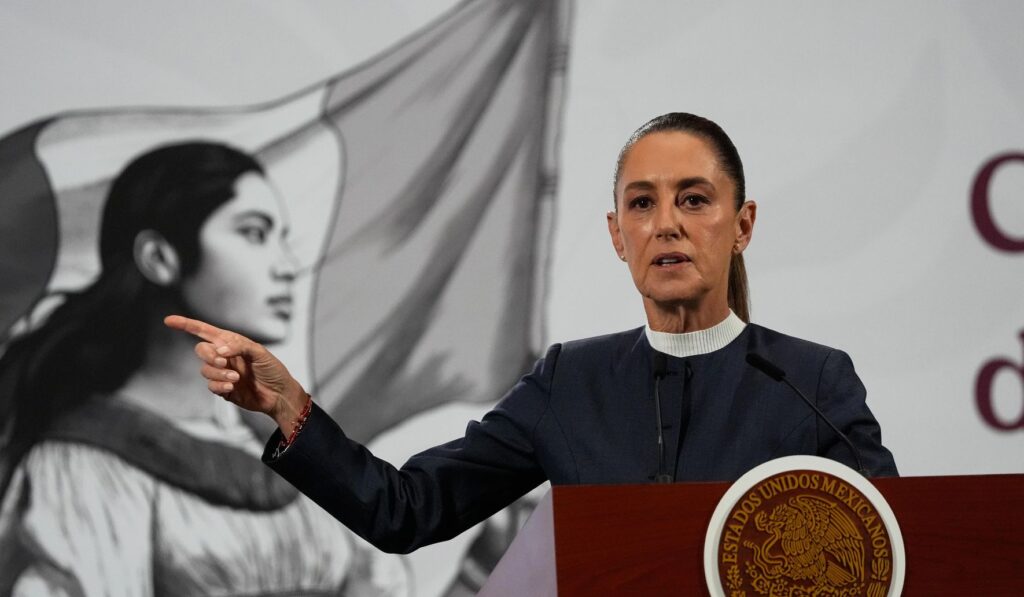President Claudia Sheinbaum was approached by a man while touring Mexico City’s historic downtown, an encounter that exposed gaps in crowd control and raised questions about public safety and political optics.
While Mexican President Claudia Sheinbaum spoke with citizens in the street in Mexico City’s historic downtown Tuesday, a man who appeared to be inebriated stepped up behind her and touched her b
The scene happened in public, where leaders often expect a degree of unpredictability but also basic protections. From a Republican perspective, the reaction from security and nearby officials matters as much as the incident itself, because it reflects how seriously a government takes safety. Crowded urban squares should not be testing grounds for presidential security policy. Citizens and officials alike deserve clear standards and swift action when boundaries are crossed.
Videos and eyewitness accounts from busy city centers show moments like this can escalate quickly, especially when alcohol is involved. The image of a leader touched in public creates a political flashpoint that opponents and supporters will both use. Conservatives typically press for stronger deterrents and clearer rules of engagement for security details so that small incidents do not become larger crises.
Security teams need to balance staying accessible with protecting a head of state. Accessibility is important, but so is a predictable, competent response that reassures the public. When an apparent drunk man moves within arm’s reach of a president, agents must neutralize the situation while minimizing spectacle. Any hesitancy is taken as a sign of weakness, which is damaging in domestic politics and foreign eyes.
Political optics play out differently in Mexico than they do in the United States, yet the basic expectations are similar: leaders should be safe in public. Opponents will demand accountability, and supporters will want explanations that do not sound like excuses. A Republican take emphasizes consequences and reforms over platitudes, arguing that actions speak louder than sympathetic statements after the fact.
There is a broader conversation about public order that this incident feeds into. If crowded public spaces become places where officials can be grabbed or pushed, the result is a chilling effect on public engagement. Conservatives tend to argue that stronger law enforcement presence and firmer enforcement of public conduct laws reduce these risks while preserving citizens’ ability to interact with their leaders.
Beyond security mechanics, there is the political fallout to consider. Incidents like this become talking points in campaigns and debates, and they can shift narratives about a leader’s competence or the state of the country. The opposition will use footage and reports to criticize governance, while allies will try to frame the event as an isolated mishap. For a Republican viewpoint, the focus is on using the moment to press for tangible policy changes rather than political theater.
Local authorities and the president’s team will likely release a timeline and an assessment, but that response must include concrete steps. Changes could mean tougher crowd screening, clearer protocols for advance teams, or retraining for handlers tasked with separating elected officials from potential threats. Those are practical fixes that aim at preventing repeats rather than just managing headlines.
At the same time, public education about how to behave in encounters with officials is important. Civility in public spaces is a shared responsibility, and when people understand boundaries, incidents drop. A conservative angle stresses both law enforcement and civic norms: enforce the rules and cultivate the habits that keep public life safe and orderly.
International observers will note how the government handles the aftermath, and those reactions can affect broader perceptions of stability. A swift, competent response projects control and respect for institutions. Conversely, muddled or defensive messaging feeds doubts about leadership and competence.



